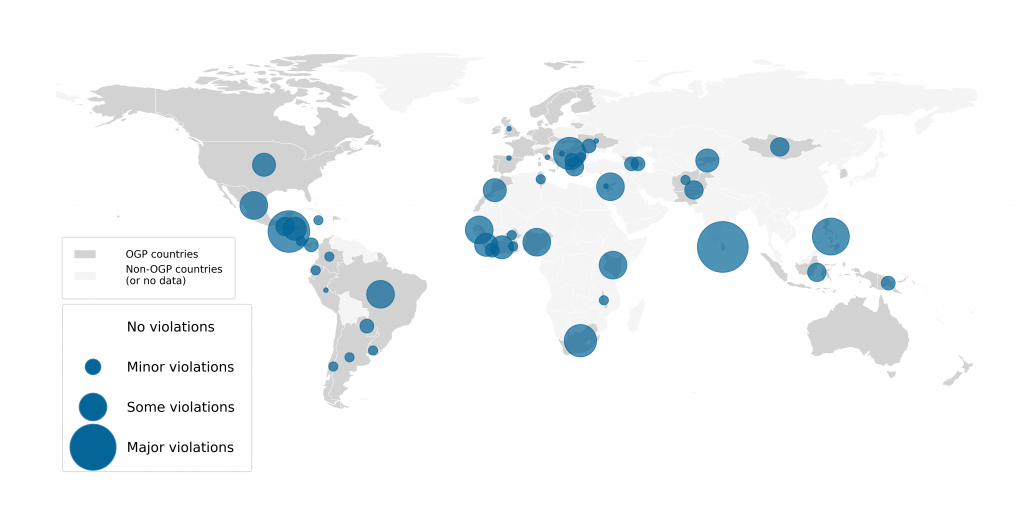
Democratic violations of OGP responses to COVID-19 according to the Varieties of Democracy
About
This page provides key insights from the global data collected by the COVID-19 OpenGov Tracker managed by the Analytics & Insights team at OGP. For more details about the data, see the Method section. This page does not provide recommendations or examples of reforms. For these and other resources, please see the OGP Guide to Open Government and the Coronavirus.
This page was last updated March 30, 2021.
Method
All data on this page is publicly available on the COVID-19 OpenGov Tracker, which scrapes and centralizes relevant information from a variety of partner websites. See the Tracker for the full list of sources as well as links to the underlying data and methodology published by each partner organization. The tracker is updated daily. Please contact renzo.falla@opengovpartnership.org with any data-related questions or comments.
Key Points
In early 2020, many countries imposed severe pandemic-related restrictions across a variety of open government issues, including right to information, civic space, and government oversight. Since then, performance has been mixed, with notable improvements in some areas – such as media freedoms – and declines in others, including surveillance and the spread of disinformation. A full breakdown of these trends is below.
Improvements
- Media freedoms: The media in fewer countries face limitations in how they can report on the government’s response to COVID-19 (17 OGP countries compared to 25 in July 2020). Limitations on media access to information related to COVID-19 have also declined. Likewise, rates of verbal and physical harassment of journalists reporting COVID-19-related news declined, although there was a slight uptick at the end of 2020.
- Government accountability: Although emergency measures in a handful of OGP countries continue to allow the executive branch to rule by decree on issues that may go beyond COVID-19, most countries have restored the role of the legislature.
- Open data: More OGP countries now publish COVID-19 testing data (81% up from 76% in October 2020 and 67% in July 2020). The publication of sex-disaggregated COVID-19 case and death data has also improved, although disclosure of vaccination data remains an important area for improvement.
No change or declines
- State violence: Security forces, including the police and/or the military, continue to use excessive force to enforce emergency measures in several OGP countries. Reports of violence and/or civilian deaths at the hands of security forces occur in 11 OGP countries. This number remains unchanged from July 2020.
- Increased surveillance: The rate of emergency measures in OGP countries that specifically cite citizen surveillance methods has increased steadily since the start of the pandemic. What was once concentrated in European OGP countries has become a global phenomenon.
- Concerns with disinformation: Ten OGP governments are frequently disseminating information about COVID-19 that deviates from official guidance provided by the WHO. This is particularly concerning given that the media in several countries continues to face limitations in reporting the nature of the virus itself.
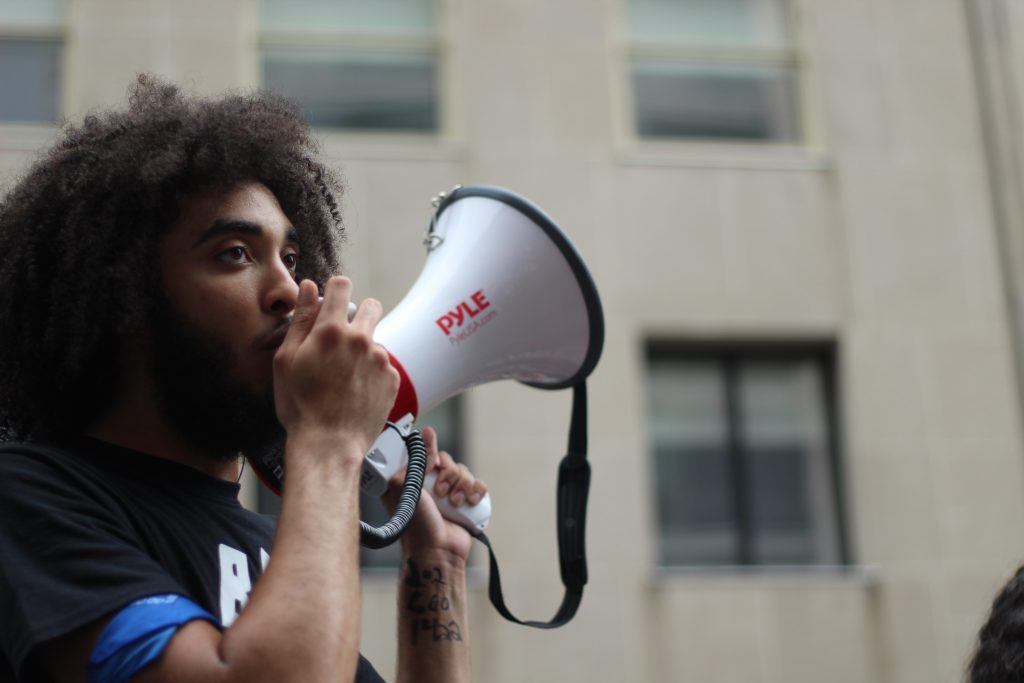
Freedom of Expression
21 OGP countries have restricted freedom of expression.
Many of the restrictions relate to misinformation about the pandemic on social media. Some governments have prohibited individuals from expressing opinions concerning the pandemic. The restrictions are disproportionately in Africa and Asia Pacific and surged in April 2020.
Learn more:

Gender and Inclusion
Emergency measures are at least occasionally discriminatory in six OGP countries.
In six OGP countries, emergency measures are implemented in a way that is at least occasionally discriminatory on the basis of race, color, sex, language, religion or social origin. As for transparency, three quarters of OGP countries are publishing sex-disaggregated COVID-19 case and death data. OGP countries have steadily improved on this metric over time. However, as vaccines become increasingly available, few countries are publishing sex-disaggregated vaccination data.
Learn more:

Media Freedom
About eight OGP countries have restricted media freedom.
Emergency measures have placed at least some limitations on how the media can report on COVID-19 in eight OGP countries (disproportionately in Africa and Asia Pacific). Seven of these countries have referenced the pandemic in imposing limitations on media reporting that go beyond news about the pandemic. These numbers have decreased since their peak in June/July 2020. Verbal/physical harassment of journalists by the government, however, has increased slightly (up to 12 OGP countries from nine in September 2020).
Learn more:
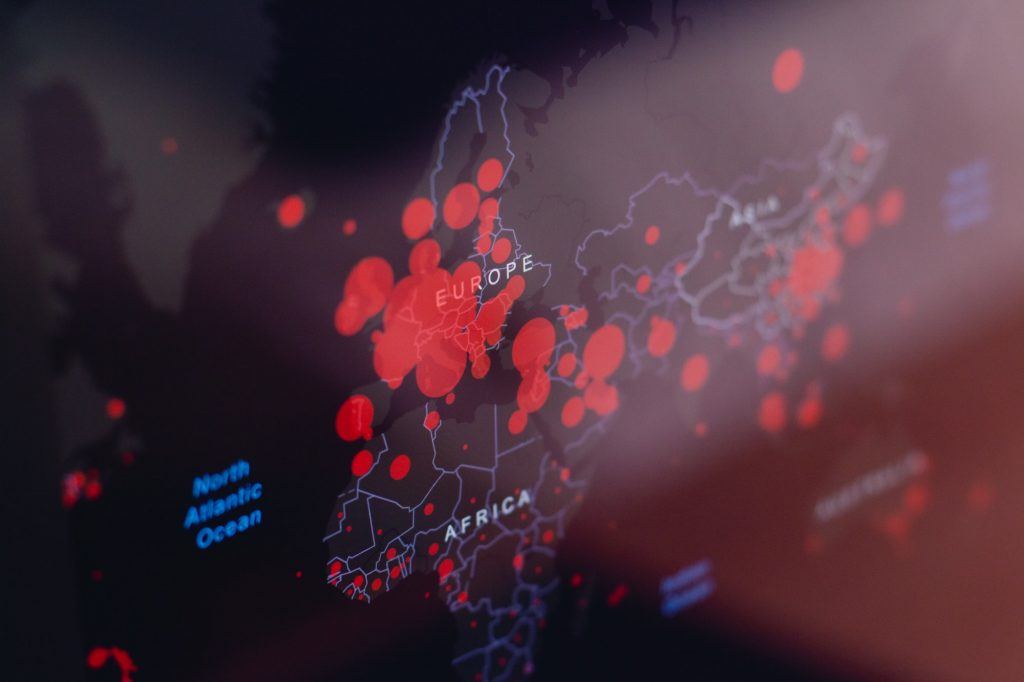
Open Data
About a fifth of OGP countries are not regularly publishing testing data.
In all, 15 OGP countries (disproportionately in Asia Pacific and Africa) are not publishing COVID-19 testing data. The rate of OGP countries disclosing this data has steadily increased since March 2020. An OGP leader in disclosure of testing data is Estonia. Moving forward, a major challenge is disclosing detailed data around vaccines, including information about recipients, government expenditures, and contracts with manufacturers.
Learn more:
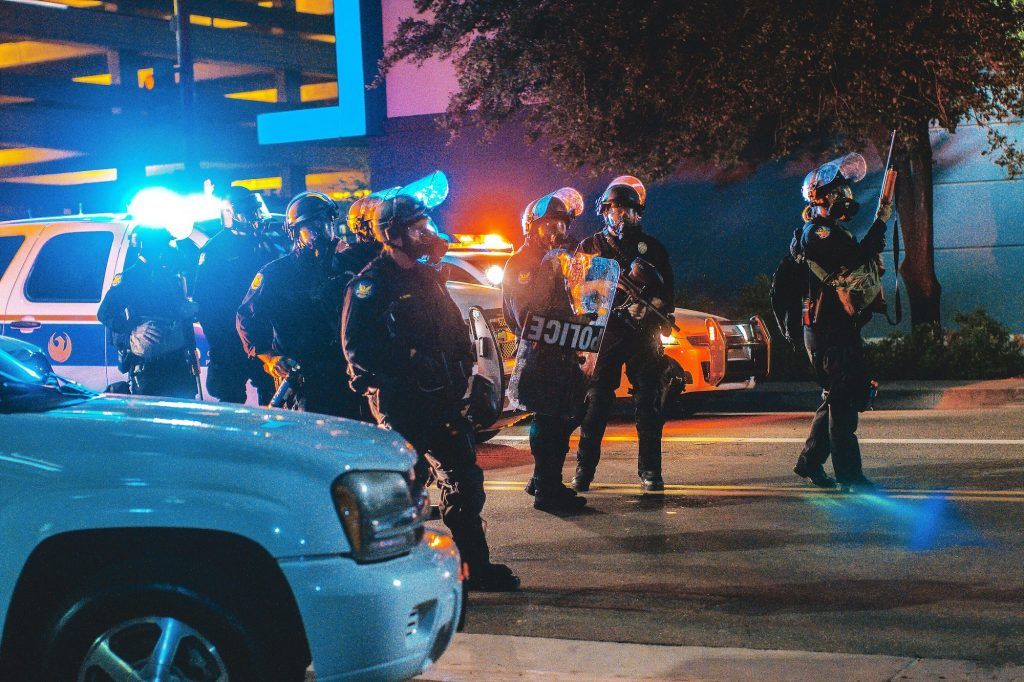
Physical Violence by Police and Military
Security forces are using violence to execute emergency measures in a quarter of OGP countries.
Security forces, including civilian police and the military, are using disproportionate physical violence against citizens to execute emergency measures in 20 OGP countries. This number decreased in September 2020 but has remained largely constant since. Countries in the Americas are significantly overrepresented in the tally.
Learn more:

Right to Information
16 OGP members suspended or altered their RTI frameworks in 2020.
Nearly one in five OGP countries suspended or altered its RTI framework in response to the pandemic. In ten OGP countries (disproportionately in the Americas), the government has provided information that deviates from official information offered by the WHO.
Learn more:
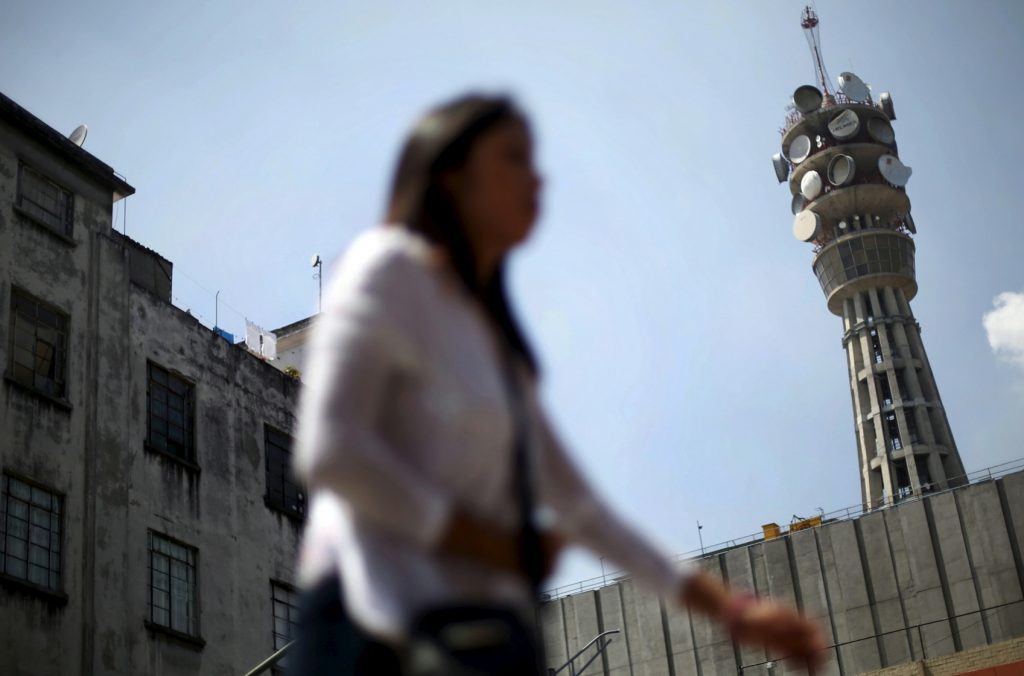
Surveillance
Emergency measures in 26 OGP countries include citizen surveillance methods.
Although many countries are using location and app data in response to the pandemic, emergency measures in about one in three OGP countries specifically reference surveillance. This number has increased steadily since May 2020. Most surveillance relates to enforcing isolation and lockdown measures – as well as contact tracing – using cell phone location data and monitoring devices.
Learn more:


Leave a Reply